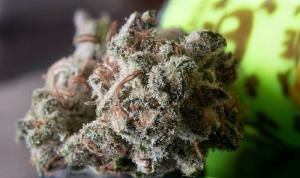Delta-type alcoholism: symptoms and treatment
Delta-type alcoholism it is a pathology with a great capacity to damage people's quality of life; This is so, among other things, because it is difficult to detect their presence.
Those who develop this addictive disorder may go a long time without being aware that they have a problem, and in the same way, people around you have a hard time seeing the first signs of alert.
- Related article: "Alcoholism: these are the effects of dependence on drink"
Are there different varieties of alcoholism?
At first, it seems easy to understand what alcoholism is, at least from theory: it is about addiction to alcohol. alcohol, one of the most commercialized addictive substances and present in practically all societies human.
However, under this definition there is a very complex set of psychopathological disorders. And that is why, for years, many researchers have proposed to classify different variants of alcoholism. In this way, it is possible to cover the entire phenomenon of alcohol addiction without losing nuance by focusing only on the general concept.
The most accepted form of classification of types of alcoholism is the following:
- Alpha drinkers: in this case, the person tends to drink excessively as a way of managing the discomfort generated by a disease. It is not considered that in these cases there is a consolidated dependency that could be called addiction.
- Beta-type drinkers: in this case there is no addiction either, the person drinks excessively as part of a routine of social encounters and leisure dynamics.
- Gamma-type alcoholism: this is a type of alcohol addiction, and in it the characteristics of chronic alcoholism, with drunkenness and loss of consciousness, withdrawal syndrome and increased tolerance to the drug.
- Delta-type alcoholism: this is also a type of alcoholism, and its main characteristic is that the person does not become very drunk to the point of engaging in socially inappropriate behavior or losing the consciousness.
- Epsilon-type (or periodic) alcoholism: This type of alcohol addiction resembles Gamma, but in this case they spend relatively long periods without excessive alcohol consumption.

- You may be interested in: "These are the 9 effects that alcohol has on the brain in the short and long term"
What is delta type alcoholism?
With what we have seen so far, you can already intuit what delta-type alcoholism consists of. Is about a form of alcohol addiction in which there are no “peaks” of very intense consumption that generates a high level of drunkennessHowever, this does not mean that it ceases to be a pathology with very harmful effects on physical and mental health. Here we will summarize its main characteristics.
1. Generates tolerance to consumption, but very little by little
The person with delta-type alcoholism you should be consuming more and more alcohol so as not to feel bad, but this increase in the minimum intake threshold grows relatively slowly.
- Related article: "Withdrawal syndrome with antidepressants: what is it and what to do about it"
2. There are hardly any "drunkenness"
In delta-type alcoholism it is relatively rare that a state of clear drunkenness is reached. Therefore, from the point of view of others it is difficult to see that that person has a problem with alcohol.
- You may be interested in: What is the psychological treatment for cannabis addiction like?
3. The person needs to drink constantly
The person with this form of alcoholism you need to drink frequently throughout the day, even at night. This causes, among other things, your sleep schedule to be altered. In addition, the person may go into a state of irritability and general malaise due to withdrawal if due to social activities they cannot stop for a drink.
- Related article: "Withdrawal syndrome with antidepressants: what is it and what to do about it"
Treatment
Delta type treatment requires medical and psychotherapeutic intervention.
First, the detoxification phase is carried out, in which the person is helped to go through the withdrawal syndrome and to let her body eliminate all the alcohol. Later, Through psychological treatment you are helped to develop skills and competencies in the following areas:
- Detection of thoughts that increase the risk of consumption
- Detection of situations and social contexts that increase the risk of consumption
- Managing discomfort due to the urge to have a drink
- Development of new hobbies and projects that offer incentives beyond alcohol
- Improved self-esteem so as not to have to escape from problems related to guilt, shame, etc.
- Questioning dysfunctional beliefs that were fueling the addiction.
Looking for therapeutic support?
If you are interested in starting a treatment process to overcome an addiction, either for an addictive disorder with substances or one without substances (such as pathological gambling or gambling), get in touch with our team of professionals.
On CITA Clinics we specialize in providing coverage to patients with addictions both from psychotherapy and from medicine, and we have a fully equipped residential module for short, medium or long income term. You will find us in our centers in Barcelona and Dosrius.


